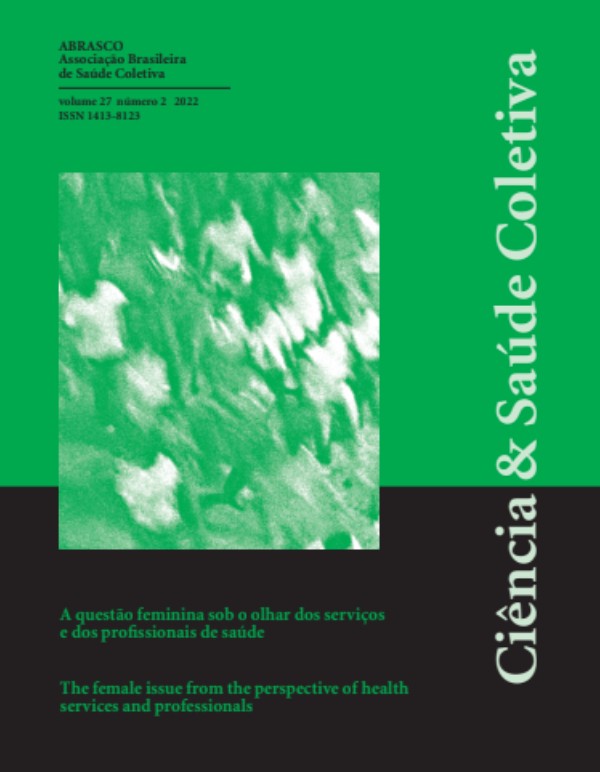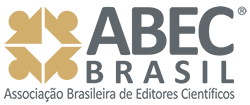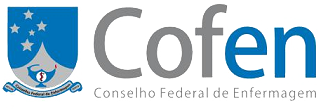Resumo (abstract):
This review evaluated the knowledge of health professionals (HP) about breastfeeding and factors that leading the weaning. A search was performed in four electronics databases and the grey literature. The search strategy included Mesh terms and synonyms. No language or date restrictions were adopted. Studies that evaluated the knowledge of HP about breastfeeding and weaning were considered eligible. The studies retrieved by the searches were evaluated by two independently examiners. From 1,417 studies retrieved, 35 were included. Many countries and professionalsdifferent health areas were analyzed. No studies evaluated the dentists\' knowledge. Although the included HP know the benefits of breastfeeding for health, the length of breastfeeding recommended by the World Health Organization, exclusive or not, was not aligned with all professionals’ endorsement. Information about weaning is scarce; however, HP are mindful of the main potential causes of early weaning. The knowledge of HP is conflicting about breastfeeding and unusual about weaning. Furthermore, no studies were found that presented data on the knowledge of dentists on the subject. Thus, assessments of dentists\' knowledge and education measures for HP are necessary since they are frequently questioned about these issues.
Palavras-chave (keywords):
breast feeding; weaning; health personnel; health knowledge, attitudes.
Ler versão inglês (english version)
Conteúdo (article):
Table 2: Description of the included studies.
Author (year) Country Study design Sample Methodology used Main results
Xian et al. (2019) China Cross-sectional study 35.243 health professionals Questionnaire 75.3% of the respondents had a high rate of knowledge about breastfeeding. The rate of knowledge about exclusive breastfeeding was high (86.7%).
Alakaam et al. (2018) USA Self-report survey design 302 nurses Questionnaire Total knowledge scores ranged between 19 and 39 in the overall sample, with the mean score 32,75. 33 respondents (10.9%) earned a perfect score to breastfeeding knowledge. When questioned “When Should the Mother Stop Breastfeeding?” 46.7% of nurses answered in cases of breast abscess, 34.1% in cases of mastitis and 30.8% in cases of the baby have frequent loose stools.
Melin, Björklund and Zwedberg (2018) Sweden Qualitative study 12 pediatricians Individual semi-structured interviews All pediatricians agreed that they played an important role in promoting breastfeeding and believed that they possessed excellent understanding of when supplemental feeding was necessary. Several factors have been described as influencing mothers\' decisions to not breastfeed or discontinue after a few months, including mental health conditions, breast surgeries, the use of prescription drugs, social situations and socioeconomic conditions (lower breastfeeding rates in low-income areas). Respondents thought that breastfeeding for more than one year was not compatible with the predominant current lifestyle.
Holtzman and Usherwood (2018) Australian Qualitative study 10 general practitioners (GP) Semi-structured interviews GPs interviewed felt that the decision to wean was an individual one. Only one GP mentioned the Australian National Health and Medical Research Council guidelines, which recommend exclusive breastfeeding up to 6 months and continuation of breastfeeding for at least 12 months. One GP stated that he recommends mothers to wean if the baby bites while breastfeeding. Some GP were supportive extended breastfeeding (beyond the age of 2 years) and others had quite negative views about it.
Marambio, Benadof and Huerta (2017) Chile Cross-sectional study 78 health professionals (midwives, doctors, nurses and nutritionists) Questionnaire with 22 questions 42.2% were correct between 50 and 67% of the questions correctly (regular knowledge), 29.5% were correct 75% (very good knowledge), 24.4% were correct between 68 to 74% (good knowledge). Only 3.8% of the participants answered less than 50% correctly, being all these doctors. Most nutritionists, midwives and nurses demonstrated knowledge classified as very good or good. 65.4% of doctors were classified as having regular knowledge.
Svendby et al. (2017) Norway Cross-sectional study 69 general practitioners (GPs) Questionnaire 39% of professionals recommend exclusive breastfeeding for 6 months and 44% recommend that the child be breastfed only up to a maximum of 12 months. 26% stated correctly that formula and human milk differ with respect to nourishment and long-term health effects. 42% of GPs considered maternal HIV infection to represent a contraindication for breastfeeding.
Artantas et al. (2016) Turkey Cross-sectional study 25 gynecology and obstetrics, 11 pediatrics, 64 family medicine, 74 general practitioners, 447 midwife-nurse Questionnaire with 29 questions Most participants (94.9%) recommended exclusive breastfeeding for the first 6 months of age. For the period after the initiation of complementary food, 84.8% were suggesting the continuation of breastfeeding until 2nd year of age and 10.1% suggested breastfeeding until one year of age. 59.9% of the participants declared that breast milk would not be enough for twin babies and formula shall be used.
Dias et al. (2016) Brazil Qualitative study 8 nurses Semi-structured interviews Most participants reported that one of the advantages breastfeeding for the family, prevention and promotion of child and maternal health, through the prevention of maternal and child diseases. Another advantage very emphasized by most nurses was the increase in emotional bonds between mother and child and family, as well as family unity and increased bonding. In addition, nurses highlighted the economics and practicality of breastfeeding as an advantage.
Sims et al. (2015) USA Cross-sectional study 29 doctors Questionnaire with 33 questions The identified barriers to exclusive breastfeeding included families not being well informed (62%), families wanting formula (55%), inadequate lactation consultation (38%), recommendation for formula by nurses (35%), nursing staff not encouraging breastfeeding (35%), doctors not encouraging breastfeeding (21%) and recommendation for formula by neonatologist (7%).
Fonseca-Machado et al. (2014) Brazil Cross-sectional study 45 nurses and 40 nursing technicians Semi-structured questionnaire 48.2% of participants believe that, if the is milk letdown up to three days after delivery it is necessary to initiate food supplementation and 44.7% disagree this affirmation. If the production of milk is decreased and the baby shows to be hungry, 24.7% believe that supplementation should start immediately.
Sallam et al. (2013) Egypt Qualitative study 30 women healthcare workers (15 nurses, 15 doctors) Oral interviews Respondents had good knowledge about importance of early breastfeeding initiation, as 96.7% were aware of the benefits of colostrum and 93.3% of them had a positive attitude regarding early breastfeeding initiation being right for each baby.
Schaffar et al. (2012) France Cross-sectional study 29 pharmacists Questionnaire with 26 questions The WHO recommendation for the duration of exclusive breastfeeding was known by 55% of pharmacists. In cases of breast clefts, 90% of pharmacists advised the continuation of breastfeeding and 10% advised that the position of the baby in the breast be corrected. For mastitis, the first attitude of pharmacists was to direct the mother to a doctor (38%). Faced with a woman complaining of insufficient lactation, none of the participants responded to advise stopping breastfeeding. About the factors that contraindicate breastfeeding, pharmacists pointed to infection by the human immunodeficiency virus (HIV) (62%), active tuberculosis (48%) and the child\'s galactosemia (31%).
McLaughlin et al. (2011) Australian Cross-sectional study 241 pediatric nurses Questionnaire with 139 items 97% knew the benefits of breast milk for the baby. Some believed infant formula is a nutritional equivalent to breastmilk and a number were unaware that supplemental formulas can interfere with the success of breastfeeding. 26% of respondents did not agree breastfeeding should continue until two years of age and beyond and 19% were unsure. 85% of participants replied that mothers should not stop breastfeeding when infant is teething. 25% of participants indicated that they would recommend ceasing breastfeeding in response to maternal fatigue.
Hanif et al. (2010) Pakistan Cross-sectional study 197 doctors and 99 paramedics Questionnaire 100% of doctors and paramedics agreed that breast milk is beneficial for baby and 85% of doctors pointed as advantage of breastfeeding the protection against infection. 49.7% of doctors believe that weaning with the introduction of food in addition to breastfeeding should be at 6 months, while 30.0% believe that it should be at 4 months. 70.0% of doctors believe that breastfeeding should be continued for 24 months.
Leavitt et al. (2009) Puerto Rico Cross-sectional study 111 pediatricians, 48 gynecologists, 11 family medicine, 7 other specialty Questionnaire with 20 questions 74% of doctors recommended exclusive breastfeeding to their patients, while 19% advising a combination of formula and breast milk. 61% recommended breastfeeding for at least 6 months and 24% for the length of time the mother prefers. 44% will recommend starting breastfeeding during the first hour after birth and 38% as early as the mothers wants to. Doctors were asked about contraindications to breastfeeding responding: the use of illicit drugs (94%), HIV (93%), Hepatitis B e C (57% e 55%), breast abscess (55%), mastitis (22%) and cracked nipples (15%). Infants’ contraindications to breastfeeding included: galactosemia (72%) and jaundice (16%).
Levinienė et al. (2009) Lithuania Cross-sectional study 84 general practitioners (GP) and 52 nurses Questionnaire 51% of GP and 45% of nurses recommended mothers to give additional liquids between breastfeeding of an infant and 1/3 of health care professionals recommended mothers to give complementary food for infants before 6 months of age. Only 21.6% of GP and 27.5% of nurses knew that breastfeeding accompanied with complementary food should be continued until the age of 2 years and longer.
Marques et al. (2009) Brazil Cross-sectional study 2 doctors, 3 nurses, 2 nursing technicians, 1 dental assistant and 1 nutritionist and 23 community health workers Semi-structured interviews and focus group 82.4% reported not having received any specific course on breastfeeding. It was observed that the act of breastfeeding was considered important for the baby. When asked if they considered themselves capable of guiding mothers on the correct lactation practice, health professionals pointed out the need for training. Moreover, the knowledge passed on by professionals to mothers was obtained through their experience, as a mother, or through the observation of mothers in the community in which they live and/or work.
Silvestre et al. (2009) Brazil Cross-sectional Study 55 nurses and 34 doctors Structured questionnaire with open and closed questions 77.5% of respondents advise maintaining exclusive breastfeeding when mothers work outside the home. 72.5% advise against formula if the baby is healthy. Less than half of the participants pointed out that infant formula should be offered immediately to children who show signs of hunger, slight deceleration in weight gain, who show no support on the 3rd postpartum day or when the mother will return to work in the 3rd month after-birth. 92.1% of participants indicated 6 months as the ideal duration of exclusive breastfeeding. About the duration of breastfeeding 83.1% of the participants considered that it should be for 24 months or more.
Szucs, Miracle and Rosenman (2009) USA Qualitative study 36 HPs (pediatric and obstetric doctors; pediatric, obstetric, public health and telephone triage answering service nurses; WIC personnel and inpatient lactation consultants) Focus groups Cultures and attitudes shaped widely divergent views among providers toward breastfeeding in public and duration of breastfeeding. In all of the non-doctors focus groups, there were examples in which providers’ personal breastfeeding experiences led to advice for women that was contrary to evidence-based recommendations. Specific examples included advice about use of early pacifier, duration of breastfeeding, exclusivity of breastfeeding, or normal weight loss in the postpartum period.
Karaçam and Kitis (2005) Turkey Cross-sectional study 301 midwives and nurses Questionnaire with 22 questions 61.1% midwives and nurses recommended that babies should be exclusively breast fed for 6 months and 33.9% reported that exclusive breast feeding for 4–6 months would be appropriate. 95.0% participants gave one or more situations to feed babies with artificial milk before 6 months, such as: insufficient weight gain of the babies, maternal conditions, lack of breast milk, baby conditions, working mothers and premature babies or low birth weight. 47.5% of the participants recommended that breast milk should be collected when mothers resumed working and 26.6% reported recommending that breast milk should be expressed but added that artificial milk could be given.
Al-Nassaj, Al-Ward and Al-Awqati (2004) Iraq Cross-sectional study 75 resident doctors (RDs) and 50 general practitioners (GPs) Questionnaire with 50 items GPs had the most positive attitudes towards breastfeeding when asked “What do you prefer for feeding your baby in the future?” 86.0% thought breastfeeding was the preferred type of infant feeding compared with only 57.3% of RDs. 49.3% of RDs agreed they would encourage a working mother to breastfeed her baby in her workplace compared with 60.0% of GPs. Scores on knowledge and problem-solving approaches towards breastfeeding were slightly higher among GP (50.0% of GP and 45.3% of RDs had adequate knowledge).
Hellings et al. (2004) USA Cross-sectional study 95 pediatric nurse practioners (PNP) Questionnaire 90.8% would encourage more frequent breastfeeding when there was concern regarding the mother’s milk supply in the first 2 weeks, whereas only 1.3% would supplement with glucose and 0.3% would supplement with formula. 88.2% recommended increased breastfeeding when the concern was jaundice in an otherwise healthy 4-day-old infant, however, while 5.5% would supplement with glucose water and 1.3% would supplement with formula. 96.1% would not stop breastfeeding in a patient with mastitis or in the presence of concern over milk supply, 100% would not stop because the baby was teething, 98.7% would not stop if the baby was having frequent loose stools, and 97.4% would not recommend the cessation of breastfeeding if the baby did not seem satiated. Only with a breast abscess was there increased uncertainty about management.
Spear (2004) USA Descriptive study 151 nurses Questionnaire 88.0% of the participants agreed that adolescent mother’s ought to be encouraged to breastfeed and only 11.9% of the participants indicated that they did not agree with this statement. A few participants were somewhat skeptical about the ability of adolescents to successfully breastfeed because to the issue of developmental stage and maturity. 41.1% of nurses did not know there are nutritional differences between breast milk and infant formula.
Okolo and Ogbonna (2002) Nigeria Cross-sectional study 6 doctors and 160 nurses Structured interviewer questionnaire 23.1% nurses believe babies less than 6 months should not be given water. Less than 50% of each professional category believes complementary feeding should start at 6 months.
Hellings and Howe (2000) USA Cross-sectional study 405 nurses Questionnaire 90.1% would encourage more frequent breastfeeding when there was concern regarding the mother’s milk supply, 1.3% would supplement with glucose and 0.3% would supplement with formula. No respondent recommended the cessation of breastfeeding. 81.5% recommended increased breastfeeding when the concern was jaundice, 11.5% would supplement with glucose and 0.3% would supplement with formula. 91.4% would not stop breastfeeding in a patient with mastitis, 95.8% would not stop in the presence of concern over milk supply, 94.6% said no in the presence of a teething baby, 95.1% would not stop if the baby was having frequent loose stools, and 95.6% would not recommend the cessation of breastfeeding if the baby did not seem satiated. Only with a breast abscess was there uncertainty.
Rasheed, Siddiqui and Baig (2000) Pakistan Cross-sectional study 70 nurses (16 qualified and 54 non-qualified) Questionnaire 58.55% recommended the introduction of a bottle from the first day, while 28.57% said that it should not be administered. 27 professionals would not indicate continuation of breastfeeding when the mother had a nipple flap and 40 when the baby had diarrhea.
Register et al. (2000) USA Descriptive study 12 medical office assistants, 23 licensed practical nurses and 99 nurses Questionnaire with 42 items 58% agreed or strongly agreed that exclusive breastfeeding is a beneficial form of nutrition. 35% agreed or strongly agreed with the statement that supplementing breastfeeding with formula during the first 2 weeks of life is a cause of breastfeeding failure.
Meaux et al. (1999) Puerto Rico Exploratory study 29 pediatrics 26 gynecology and obstetrics Questionnaire 27.8% of doctors would recommend a combination of natural and artificial breastfeeding for mothers who are lactating but are concerned about milk production during the first two weeks of birth. While 64.8% would recommend exclusive breastfeeding. 63.6% of doctors recommend complete weaning in cases of abscess and 30.9% in cases of mastitis. In addition, when there is diarrhea, significantly more with obstetricians (26.9%) than pediatricians are (3.4%). 100% of obstetricians and 96.2% of pediatricians do not recommend weaning when the eruption begins.
Burglehaus et al. (1997) England Cross-sectional study 24 obstetricians; 20 pediatricians; 69 family practitioners; 97 general practitioners Questionnaire with 40 questions In the face of breastfeeding problems, 94% of doctors reportedly always or usually encourage patients to continue breastfeeding. Family practitioners more strongly believed that breastfeeding provides adequate nutrition than did doctors in other specialties and general practitioners were more likely to be neutral or disagree. 24% of doctors felt that adding cereals to the infant\'s diet helps the infant sleep through the night.
Patton et al. (1996) USA Cross-sectional study 230 nurses Questionnaire with 19 questions 64% of the nurses indicated they were very interested in helping mothers learn how to breastfeed and would encourage breastfeeding. 75% nurses classified the time factor as primary nursing barriers to breastfeeding promotion. 64% of nurses mentioned that the most common form of breastfeeding information sources was their personal experience with breastfeeding. The most common maternal barriers to breastfeeding mentioned by nurses were incomplete knowledge and psychological support.
Lazzaro et al. (1995) USA Cross-sectional study 151 HPs (doctors, nurses, licensed practical nurses, medical assistants, and nutritionists) Questionnaire with 17 questions 91% of the doctors and 92% of the nurses in private offices advocate breastfeeding when a mother is undecided about infant feeding. All categories of professionals recommend giving supplements to breastfed infants. 81.7% agreed with the statement that supplementation with formula in the first 2 weeks of life is a cause of breastfeeding failure. Between 87-100% of respondents rated the mother’s return to work or school as more important than other reasons for early cessation of breastfeeding, such as baby teething.
Barnett, Sienkiewicz and Roholt (1995) USA Cross-sectional Study 1754 nurses; 135 nutritionists; 135 pediatricians; 65 family doctors; 55 obstetricians; 65 health educators Questionnaire with 10 belief statements 80% of health professionals strongly disagreed that most breastfeeding babies require supplemental formula to gain sufficient weight. Only 14% of professionals with somewhat negative beliefs advocated weaning at 2 years of age or older, compared with 24 percent of those with somewhat positive beliefs and 47 percent with positive beliefs. Breastfeeding beliefs, work environment, and personal breastfeeding experience each significantly influenced advocacy of early weaning from the breast, defined as 9 months of age or younger.
Bagwell et al. (1993) USA Cross-sectional Study 41 nutritionists, 158 nurses and 90 doctors Questionnaire HPs were slightly less likely to recommend breastfeeding to working mothers, mothers in school, and adolescent mothers. They did not recommend breastfeeding for mentally retarded mothers. nutritionists and nurses were more likely to recommend breastfeeding to a mother who had made the decision to bottle-feed than were doctors. Doctors were less likely to think that breastfeeding was incompatible with working outside the home or attending school than were nurses. nutritionists were more interested in breastfeeding and lactation management than were nurses. Nurses were more likely than dietitians and doctors to think that mastitis and engorgement are reasons to discontinue breastfeeding.
Hull, Thapa and Wiknjosastro (1989) Indonesia Cross-sectional study 111 midwifes; 26 nurses; 12 general practitioners; 11 obstetrician/gynecologist; 7 pediatricians Questionnaire 50% of health providers thought that exclusive breastfeeding was sufficient for only 3 months and a further 16% for only 2 months. Most respondents felt that solid food should be introduced at 3-4 months of age. 68% of health providers felt that a baby with diarrhea should still be breastfed.
Popkin, Yamamoto and Griffin (1984) USA Cross-sectional study 189 doctors, 280 nurses, 782 midwives, 47 health aides Questionnaire More than 70% of the professionals contraindicated the continuation of breastfeeding in the following situations: breast abscess, mothers with tuberculosis and babies with diarrhea.
HPs: Health Professionals
HIV: Human Immunodeficiency Virus
WIC personnel: These are usually for nutrition assistants, clerks, breastfeeding peer counselors, dietitians, nutritionists and custodians.
WHO: World Health Organization
Acessar Revista no Scielo













